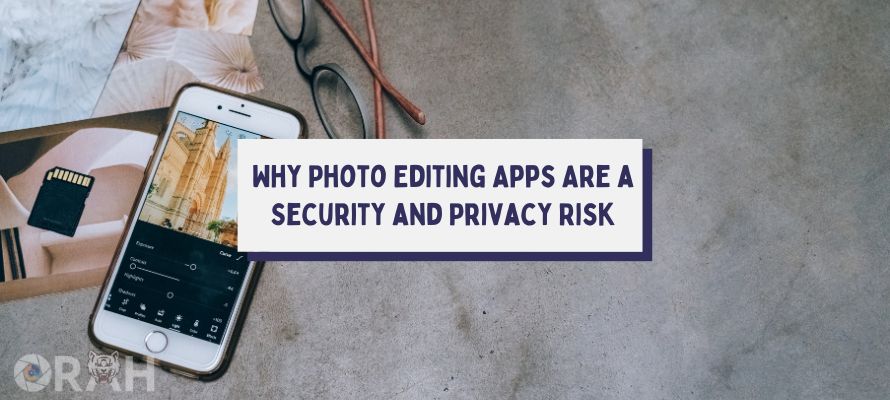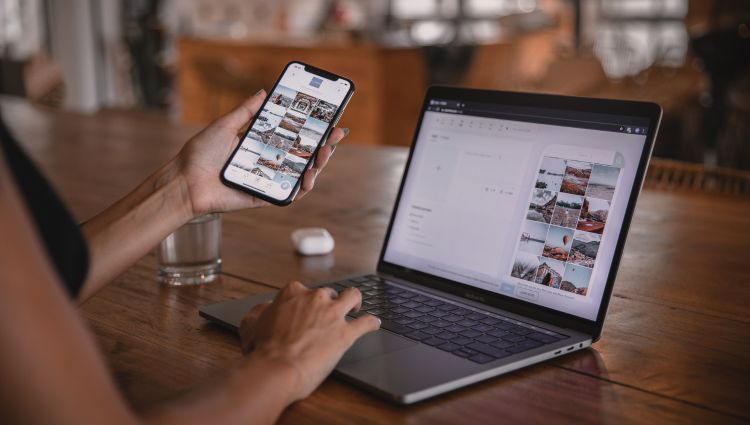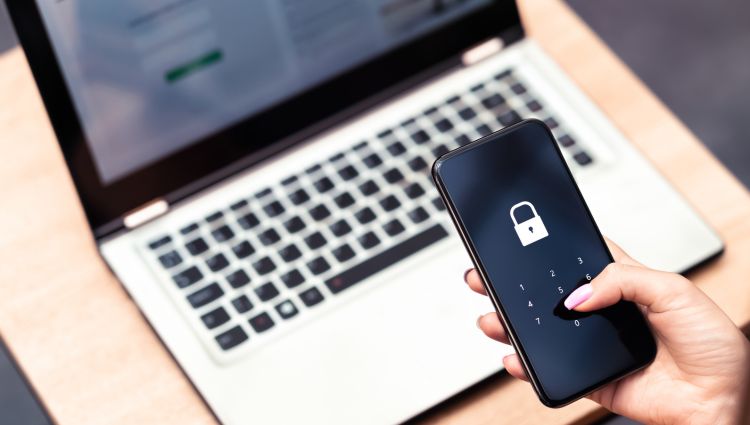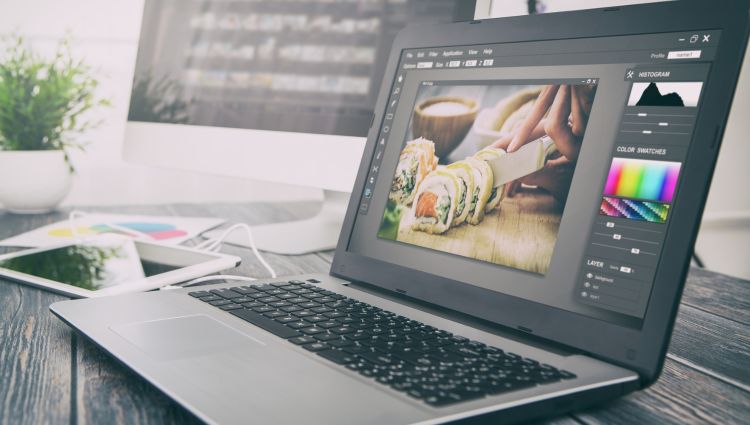
Photo editing software has become increasingly important in today’s era of smartphones and 4K cameras.
Whether you’re an amateur photographer or someone who simply wants to add a stylish filter before sharing a photo on Instagram, choosing the right editing app is crucial.
Unfortunately, many popular apps for photographers face significant data privacy and security concerns that everyone should be mindful of.
What is the essence of the problem?
Photo editing apps on both Google Play and Apple’s App Store present serious security and privacy concerns. By default, these apps request various permissions and handle sensitive data.
With hundreds of these apps available and some having millions of downloads, the risk of personal photos being compromised or unauthorized use of the camera is a real concern.
Researchers from Cybernews uncovered numerous violations of user privacy by popular photo editing apps.

These violations include unauthorized data collection and resale, malicious ads, redirection to phishing and spam sites, malware installation, and unauthorized access to the camera and microphone.
The researchers analyzed the top 30 “beauty camera” apps on Google Play. Out of these apps, 29 requested access to the camera and files, 23 asked for microphone access and demanded location information and one app requested permission to scan contacts.
Additionally, 16 of the 30 most popular photo editing apps were traced back to locations in China or Hong Kong, which have relatively lax privacy regulations.
In 2021, several cybersecurity researchers uncovered a disturbing discovery:
Some of the widely-used photo editing apps – Blender Photo Editor – Easy Photo Background Editor, Magic Photo Lab – Photo Editor, and Pix Photo Motion Edit – were found to be stealing Facebook users’ credentials.
As reported by Bleeping Computer, these apps would prompt users to log in using their Facebook accounts, steal their credentials, and scour their accounts for any payment information.
What editing app risks are we talking about?
Perhaps you’ve employed a filter to obscure certain parts in a frisky photo or used an app to crop and remove specific sections before sharing it on social media.
But in an era dominated by all-powerful AI, will these modifications remain concealed forever? Can you verify that the app’s administrators didn’t obtain an unfiltered version of the image?
However, concerns should also extend to the exposure of metadata on the internet. All images inherently contain information about their capture location, the device used, and other details.

When you upload a photo, this information is also uploaded. Others can easily snatch this data.
Furthermore, nearly all mobile phone apps track your location and utilize it to gather your IP address, which is then sold to marketing companies.
Additionally, there is the matter of data harvesting. Why does a photo app require permission to scan your contact details or files? It’s a blatant attempt to collect and sell your data!
Do you retain the rights to the photo?
When accepting the terms of use for photo apps and similar software, users often surrender multiple rights.
Lensa, for instance, includes in its terms of use the following statement:
“By posting or submitting User Data on the Site or disclosing it to us in any other way, you grant us a royalty-free, transferable, sublicensable, perpetual, non-exclusive, worldwide license to use all such User Data in whole or in part, and any form, media, or technology, whether now known or developed in the future.”
Software terms provide companies with significant control over user information, suggesting that rather than placing the burden on individual users to protect themselves, society should seek ways to hold app-makers accountable for their data acquisition practices and privacy policy commitments.
Although the application removes metadata to avoid revealing unnecessary data, this still does not help the situation.
Even without metadata, it remains uncertain how the company may use users’ photos in the future.
For instance, she questioned the implications if the company were to be purchased by an unknown entity. Photos submitted by users could potentially become accessible to the public.
The debate over Lensa and similar apps encompasses the broader debate on the extent of information disclosure while using software.
The world is rapidly moving towards a more biometric-oriented era, and although losing your social security number can be problematic, losing your biometric data can be much more permanent and potentially devastating.
Most consumers have not pondered this aspect while sharing numerous photos on platforms like TikTok, Lensa, or any other app provider at the forefront of the latest social media trends.
How to protect yourself from malicious applications?
#1. Analyze requested permissions during installation
During the installation process, certain malicious apps might include additional requests for extra permissions.
This practice, known as privilege escalation, potentially grants hackers permanent access to your phone.
Consequently, they can bombard you with annoying ads, redirect you to phishing and spam websites, and even install malware.
Moreover, some apps have been detected secretly accessing the camera and microphone without obtaining prior permission. An example of such behavior was observed by the “Beauty Camera” app.
#2. Always use a VPN
Usually, everyone uses a VPN to change location on iPhones. This is a really important task, but not the only one. The VPN also offers encryption of data during transmission.
With a powerful VPN service like VeePN, you can prevent data interception. All data is encrypted, and the 256-bit encryption is virtually impossible to crack. Plus, no one can track where you transfer or receive files from.
#3. Analyze the developer’s reputation
Certain developers gain notoriety due to their unethical conduct. For instance, malware or spyware has been detected in the BeautyPlus – Easy Photo Editor & Selfie Camera app, developed by Meitu, a Chinese company that seemingly collects and sells user data.
#4. Download from official sources
Stick to the official app stores. However, both Google and Apple have allowed malicious apps to slip through the cracks, so exercise caution even when downloading from official sources.
#5. Read the app reviews
This might raise concerns if there are no reviews, only positive ones, or a collection of 5-star ratings without accompanying comments.
It’s advisable to verify the reviews on alternative platforms such as Reddit or mobile user forums.
Which photo editing apps are safe?
What is happening here is logical. The demand for photo editing mobile apps is massive.
Cybercriminals and shady developers are capitalizing on this opportunity to deploy various malware types, push ads, gather data, and generate profits.

This does not imply that you should avoid photo editing apps altogether. However, ensure that you exclusively use secure software that respects your privacy.
#1. PhotoDirector
PhotoDirector, an immensely capable photo editor, caters to advanced users and photography enthusiasts.
Packed with a plethora of robust features, PhotoDirector presents a splendid alternative to Adobe Lightroom.
While a free version is available, the paid version provides extra tools to experiment with and unlocks access to multiple stock photo sites.
#2. Photoshop
You can use Photoshop, a powerful and lightweight app, to edit photos, create collages, and apply various filters and effects.
Although the advanced features require a subscription, the free version should suffice for most users.
#3. Pixlr
Even beginners can easily master the basic functions of Pixlr, a fun and user-friendly application.
It offers a variety of cool features, such as image retouching, digital painting, and photo enhancement, which prove handy when sharing content on Instagram or Twitter. However, an ad-free experience requires payment as the app does display ads.
Conclusion
More pictures are captured today than ever before. It comes as no surprise that the market for photo editing software is massive. However, it is crucial to exercise caution when downloading apps.
Conducting thorough research about the developer, scrutinizing permissions, identifying warning signs in reviews, and remaining vigilant during installation are essential steps. These precautions can help you avoid potential troubles in the future.